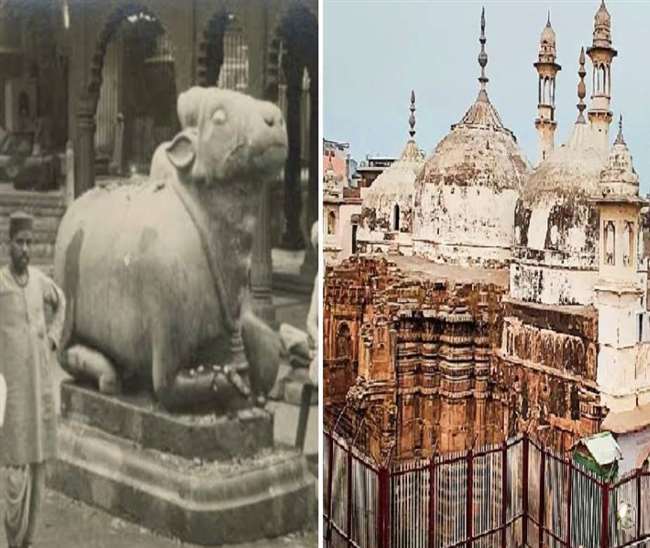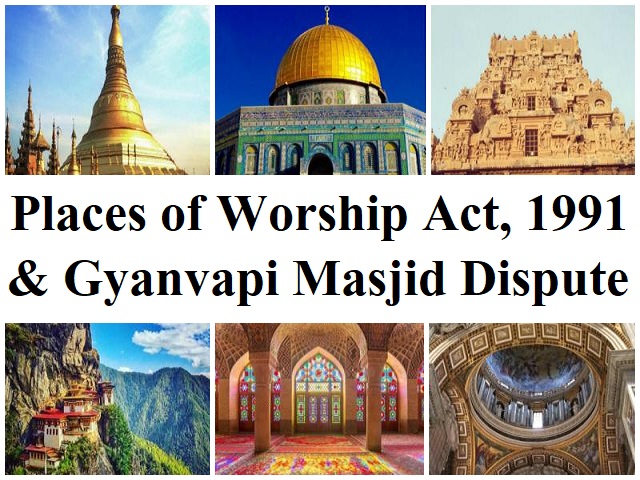In recent developments, the Archaeological Survey of India (ASI) has commenced its survey of the Gyanvapi Mosque in Varanasi. This survey has stirred significant controversy, with the Muslim community opposing it vehemently. Nonetheless, the survey is in progress as the administration remains vigilant in and around the premises, deploying over 2000 security personnel. Let’s delve into the details surrounding this contentious survey and understand its significance.

Unraveling the Mysteries of the Gyanvapi Mosque Survey in Varanasi ;
The Court’s Directive and Muslim Community’s Opposition
On 21st July, the Varanasi Court ordered the ASI to conduct a survey of the entire premises, excluding the Gyanvapi mosque area. The Muslim community disagreed with the court’s decision and filed a petition in the Supreme Court. However, before any hearing could take place, the ASI went ahead and initiated the survey. The ASI is expected to submit the survey report to the Varanasi Court by 4th August.
Collaboration and Community Stance
The administration facilitated a meeting on Sunday morning, attended by representatives from both the Hindu and Muslim communities along with their respective lawyers. The Hindu community expressed their willingness to cooperate with the survey team and even accompanied them inside the Gyanvapi area. On the other hand, the Muslim community maintained their stance against participating in the survey.

Arguments from the Hindu Side
The Hindu community’s legal representative, Subhash Nandan Chaturvedi, conveyed their unwavering belief that the entire premises belonged to a temple. They are optimistic that the survey results will favor their claims, asserting that this survey represents a pivotal moment for the Hindu community.
The Survey Techniques Employed by ASI
The Archaeological Survey of India employs Ground Penetrating Radar (GPR) and Georadiology systems to conduct surveys of ancient structures and ruins. These modern technologies aid in studying old buildings and archaeological sites. The same techniques are being utilized in the Gyanvapi survey to unravel the past.
Insights from the Survey
During the ongoing survey, Vishnushankar Jain, an attorney representing the Hindu community, presented evidence indicating that between 14th and 16th May, during a previous survey, a separate white stone structure resembling a 2.5-foot tall circular Shivalinga was discovered. The stone structure bore a cut mark, and a 63-centimeter deep well was found upon inserting a probe. Additionally, the base of the circular structure measured 4 feet in diameter.
Contrarily, the Muslim community claimed that a black stone structure resembling a fountain was found at the center of the Gyanvapi mosque. However, no perforations or spaces for pipes were detected in this supposed fountain-like structure.
ASI’s Methodical Approach
The ASI survey team uses the GPR and modern technology to traverse the area systematically. As they move forward, they meticulously search for evidence of past human activities, such as walls, foundations, artworks, or color changes in the soil, which may indicate the presence of historical structures. By methodically documenting these findings, the team preserves invaluable evidence for further examination.
The ongoing survey in Gyanvapi will undoubtedly provide critical insights into the historical significance of the site, and ASI aims to preserve all evidence discovered during the process.
Carbon Dating Halted in Gyanvapi Mosque Case
The Supreme Court has put a stop to the scientific survey and carbon dating of the alleged Shivalinga found in Gyanvapi Mosque. On 12th May 2023, the Allahabad High Court had ordered the carbon dating and scientific examination of the solid structure located within the Gyanvapi Mosque premises. The Supreme Court emphasized the need for caution while proceeding with this matter. The hearing was conducted on the petition filed by Huzeifa Ahmad, the lawyer representing the Gyanvapi Mosque Management Committee.
To more about ; Aditya-L1: India’s First Solar Probe to Study the Sun
Chandrayaan 3 Launched! Live Status Update
Conclusion
The Gyanvapi Mosque survey in Varanasi remains a contentious issue with strong opinions from both the Hindu and Muslim communities. While the Muslim community has opposed the survey, the Archaeological Survey of India has taken a proactive approach in conducting it using modern technologies like GPR. The survey’s findings are expected to shed light on the historical significance of the site and contribute to the understanding of its past. As the survey continues, it is essential to approach the matter with sensitivity and respect for both communities’ sentiments.
FAQ ;
Qu 1 ; What is the case of Gyanvapi mosque?
Ans. The Varanasi District Court today granted a petition from four female worshipers seeking information to conduct a “scientific survey” of the entire Gyanvapi mosque grounds by the Archaeological Survey of India (ASI), with the exception of the barricaded “wazukhana” where a structure allegedly housing a “shivling” has been claimed by Hindu litigants.
Qu 2 ; Who is the Hindu advocate in Gyanvapi Mosque?
Ans . The five Hindu women who filed a lawsuit in Varanasi’s civil court are being represented by Harishankar Jain, who claims that the Gyanvapi mosque’s exterior wall bears religious carvings of the Hindu goddess Maa Shringar Gauri and other Hindu deities.
